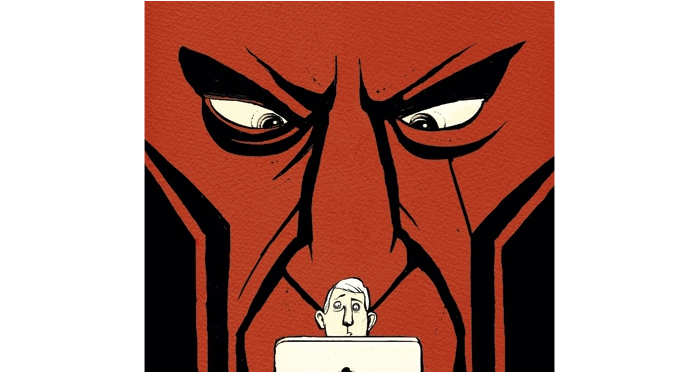Parliament’s intelligence watchdog is muzzled, neutered and sick.The Intelligence and Security committee, which oversees the UK intelligence community – MI5, MI6, GCHQ etc – released its annual report this week, and it makes for a sad read. The committee says it is ‘concerned’, ‘perplexed’ and ‘disappointed’ with the government. At one point it is ‘deeply disappointed and concerned.’ The government is deliberately obstructing the committee’s work, it says.
The ISC’s most serious complaint is that the government is refusing to let them oversee the whole scope of the Britain’s intelligence community. Intelligence and security activities are increasingly devolved to units within Whitehall departments. They might involve transport security or telecoms security, rather than activities more often associated with MI5 or MI6. The ISC, as the only committee with the necessary clearances, thinks its remit should cover these units. It was therefore ‘taken aback’ – committee speak for apoplectic – to be denied oversight of the Investment Security Unit, which draws on secret intelligence to advise on national security risks to the UK from foreign investments or acquisitions.
The committee has also been refused access to the Counter Disinformation Unit, which sits in the Department for Science, Innovation and Technology. The CDU does potentially sensitive work which attracts conspiracy theories. Its critics say snoopers are employed to monitor online dissent and quash criticism of government policies. According to some MPs, it is a stain on democracy. The reality is likely far more banal, but there is again too little transparency. Previous attempts to counter domestic disinformation, in the 1970s, withered under an absence of oversight in an era of polarised politics. The work was so contentious that those involved deliberately ‘pitched it in a minor key’ to downplay what they were doing to their own colleagues. Someone with security clearance needs to have oversight of the CDU.
Separately, the ISC says it is worried about the quality of the evidence it is receiving about Britain’s intelligence activities. It thinks some of what it is been given (the public are not allowed to know specifics) is inaccurate – inadvertently or otherwise. The ISC recalls a particularly bizarre interaction with the then foreign secretary Dominic Raab, when he was asked if he had ever authorised actions by our intelligence services which posed a ‘real risk of torture’ to someone. ‘On the sort of curry menu, I’m a spicy madras. So I want to be really careful,’ Raab said. ‘I don’t want to take them [our intelligence services] into vindaloo or even phaal territory which means that I risk repercussions the day after’. The Foreign Office later admitted that he actually had authorised an operation where information was passed to a foreign government where a suspect faced ‘a real risk of torture’ by a foreign government. The ISC lists numerous other ways the government has obstructed its work in the last few years.
Intelligence is secret, often by necessity, so since the Intelligence and Security Committee’s creation in 1994, the British public has delegated oversight of the intelligence community to this small band of parliamentarians who are allowed to see classified material. But the committee’s power is eroding. For two decades following the creation of the ISC in 1994, its members met annually with the prime minister. The last such meeting was held in December 2014 – almost a decade ago. David Cameron gave up on them; Theresa May did not resurrect them; Boris Johnson was Boris Johnson.
Former ISC chair Dominic Grieve accused Johnson of coming up with ‘entirely bogus’ reasons to further delay publication of the committee’s long-awaited Russia Report in 2020. It had taken months for the committee to be reestablished after the 2019 election, before Johnson tried to saddle it with Chris Grayling as chair. Liz Truss invited the committee for a meeting, but then ignored its attempts to set a date, presumably because she was overtaken by more pressing events. Rishi Sunak seems to offer more of the same neglect and contempt.
Former cabinet secretary Lord Butler, who knows a thing or two about intelligence, having overseen an early inquiry into the Iraqi WMD fiasco, has accused the government of taking a dislike to the ISC and trying to restrict its activities. It is hard to disagree. This erosion of parliamentary oversight has left the despairing ISC in an existential crisis. The watchdog is howling into the wind.






Comments